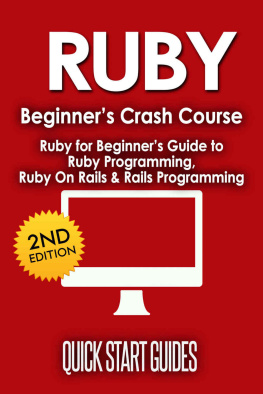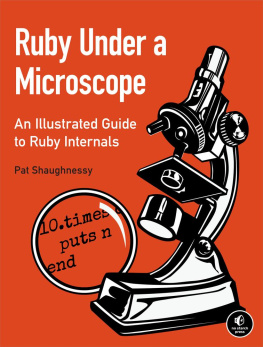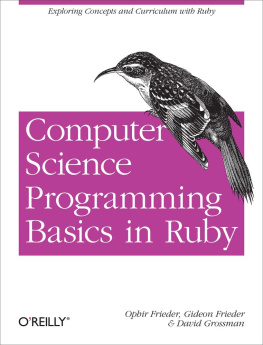Lucas Carlson - Ruby Cookbook
Here you can read online Lucas Carlson - Ruby Cookbook full text of the book (entire story) in english for free. Download pdf and epub, get meaning, cover and reviews about this ebook. year: 2015, publisher: OReilly Media, genre: Computer. Description of the work, (preface) as well as reviews are available. Best literature library LitArk.com created for fans of good reading and offers a wide selection of genres:
Romance novel
Science fiction
Adventure
Detective
Science
History
Home and family
Prose
Art
Politics
Computer
Non-fiction
Religion
Business
Children
Humor
Choose a favorite category and find really read worthwhile books. Enjoy immersion in the world of imagination, feel the emotions of the characters or learn something new for yourself, make an fascinating discovery.
- Book:Ruby Cookbook
- Author:
- Publisher:OReilly Media
- Genre:
- Year:2015
- Rating:4 / 5
- Favourites:Add to favourites
- Your mark:
Ruby Cookbook: summary, description and annotation
We offer to read an annotation, description, summary or preface (depends on what the author of the book "Ruby Cookbook" wrote himself). If you haven't found the necessary information about the book — write in the comments, we will try to find it.
Why spend time on coding problems that others have already solved when you could be making real progress on your Ruby project? This updated cookbook provides more than 350 recipes for solving common problems, on topics ranging from basic data structures, classes, and objects, to web development, distributed programming, and multithreading.
Revised for Ruby 2.1, each recipe includes a discussion on why and how the solution works. Youll find recipes suitable for all skill levels, from Ruby newbies to experts who need an occasional reference. With Ruby Cookbook, youll not only save time, but keep your brain percolating with new ideas as well.
Recipes cover:
- Data structures including strings, numbers, date and time, arrays, hashes, files and directories
- Using Rubys code blocks, also known as closures
- OOP features such as classes, methods, objects, and modules
- XML and HTML, databases and persistence, and graphics and other formats
- Web development with Rails and Sinatra
- Internet services, web services, and distributed programming
- Software testing, debugging, packaging, and distributing
- Multitasking, multithreading, and extending Ruby with other languages
Lucas Carlson: author's other books
Who wrote Ruby Cookbook? Find out the surname, the name of the author of the book and a list of all author's works by series.


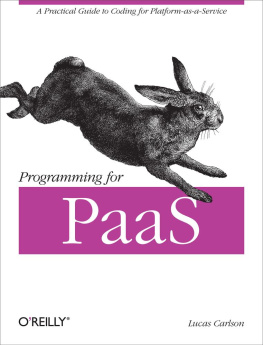
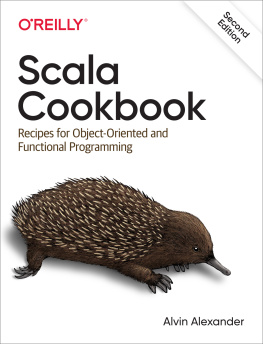

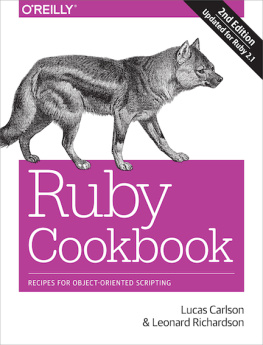
![Jay Godse [Jay Godse] - Ruby Data Processing: Using Map, Reduce, and Select](/uploads/posts/book/124108/thumbs/jay-godse-jay-godse-ruby-data-processing-using.jpg)
